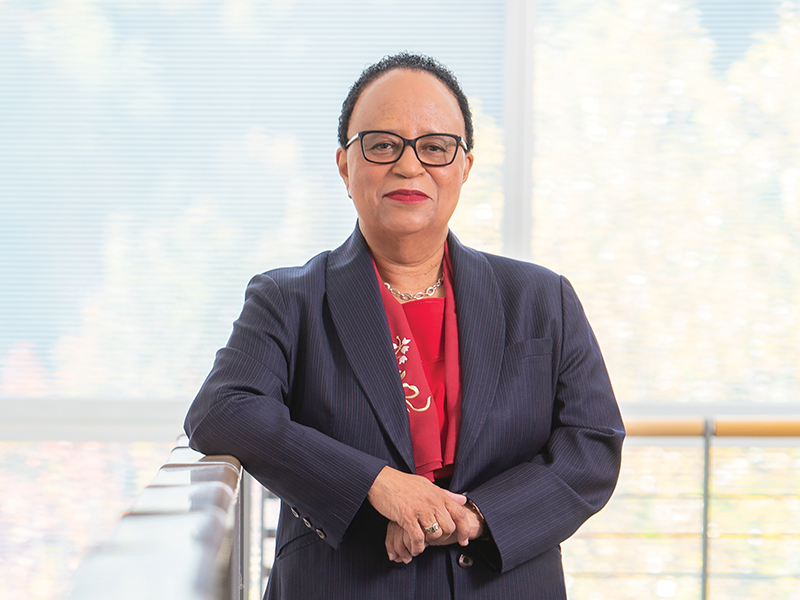
Shirley Ann Jackson was one of the first two African American women to receive a doctorate in physics in the United States and was the first African American woman to receive a doctorate from the Massachusetts Institute of Technology. Described by Time Magazine as “perhaps the ultimate role model for women in science,” Jackson has held senior leadership positions in academia, government, industry, and research.
A theoretical physicist, Jackson is the 18th president of Rensselaer Polytechnic Institute. Prior to joining RPI in 1999, Jackson worked at Bell Laboratories and served on the faculty of Rutgers University. In 1995, her research on subatomic particles earned her the position of chair of the U.S. Nuclear Regulatory Commission. In 2014, President Barack Obama appointed the renowned physicist as co-chair of the President's Intelligence Advisory Board, where she served until 2017. Jackson’s numerous awards and wide-ranging work demonstrate her profound contributions to science, technology, and education. In addition to the National Medal of Science, the nation’s highest honor in science and engineering, Jackson has been awarded 55 honorary doctoral degrees throughout her barrier-busting career.
Jackson arrived at the Massachusetts Institute of Technology in 1964 as one of the only African American students. Right away, she proved herself to be a top student who was also committed to promoting social justice. As an undergraduate, Jackson organized MIT’s Black Student Union and worked to increase the number of Black students entering MIT. After only one year, the number of entering students rose from 2 to 57. Despite the tough courses, she managed to keep her grades up while also doing volunteer work at Boston City Hospital and tutoring students at the Roxbury YMCA. In 1968, she earned her Bachelor of Science degree in physics after completing her thesis on solid-state physics.
Although accepted at Brown, Harvard, and the University of Chicago, Jackson decided to stay at MIT for her doctoral work because she wanted to encourage more African American students to attend the prestigious institution. She worked on elementary particle theory for her Doctor of Philosophy degree, which she completed in 1973.
Throughout her career, Jackson has remained on good terms with MIT. Notably, she is a life member of the MIT board of trustees. She has also returned to campus to participate in at least two social justice-related events. In 2018, for instance, Jackson was seen at MIT after being asked to take part at the school's 50th anniversary celebration of its Black Students' Union. Taking the podium, she used the opportunity to discuss the challenges of those typically underrepresented in STEM. Likewise, in 2000, Jackson was slotted as a guest speaker at MIT's 26th annual celebration of the life and legacy of Dr. Martin Luther King Jr. After discussing the need to improve the academic success of minority students in American universities, Jackson touched on her own experiences as a student at MIT.
"Those lessons — the lessons of humanity and humility, of organization, of realizing that another's struggles can be greater than one's own — helped me to become a better human being, and consequently contributed to the successes I have attained."
